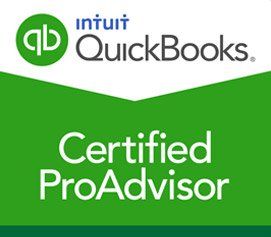Bahamas Tax Haven Laws - How to Take Advantage of Them
American expats like to go all over the world. Europe, South America, Asia- name a continent and you’ll find a community of expats there. But amongst all the potential countries expats visit, the Bahamas are perhaps the most interesting.
You might have heard that the Bahamas boast beautiful beaches and a very laid-back culture. For as true as this is- have you considered the Bahamas’ tax haven laws, and how expats take advantage of them?
What are tax havens?
We’ve all heard of tax havens being used by the wealthy to escape the grip of the Internal Revenue Service and its strict tax laws. In truth, “escape” is only half the story.
These locations also provide corporations and wealthy citizens the secrecy they desire to keep the money far from the IRS. As such, tax havens have the primary goal of hiding income and escaping taxes. Still, not all tax havens are made equal.
We highly recommend connecting for a
free one hour consultation with a tax professional. Mistakes made when trying to utilize tax havens have heavy penalties, including steep fines and jail time.
How do tax havens work?
Any country, state, or territory which offers foreigners (individuals and businesses) little to no tax liability are tax havens. These locations must also be politically and economically stable in order to keep the trust of those wealthy tax avoiders. These havens come in three categories:
Primary: The physical location where money is deposited, usually a bank in the tax haven itself. Because they have no corporate tax, the
Cayman Islands are a common go-to when people think of a tax haven.
Secondary: Locations with very low taxes in order to encourage business growth. Think of
Ireland and its favorable tax laws towards corporations.
Conduits: These are locations where money made from deals outside the corporation’s country can be collected, and then transferred into a primary or secondary tax haven. So, for example, if Coca-Cola makes a big deal in Ethiopia, they can hold the cash in a secure bank there, and transfer it to Ireland.
Why are the Bahamas special?
We wanted to highlight the Bahamas because it has a reputation for very light tax policies. Most forms of taxes are not imposed on its citizens and resident aliens, including:
- Income taxes
- Capital Gains taxes
- Gift taxes
- Inheritance taxes
- Sales taxes
Investors, business owners, and wealthy individuals also understand that the local economy is stable and growing steadily. When you add on the sun and fun, is it any wonder why so many American expats choose the Bahamas as the primary tax haven to settle down in?
If you are considering utilizing the Bahamas as a tax haven, connect for a
free one hour consultation with a Yoke Tax professional.
Where does the government make money, then?
When most people hear about the incredibly friendly tax laws in the Bahamas, they question how the Bahamian government even manages to keep itself running. After all, we all learned in grade school that governments run on taxes. In truth, the government makes its revenue from other forms of tax, like:
- Value-added tax
- Stamp tax
- Property tax
- Import tax
- License fees
The Bahamas is probably as close as an American libertarian can get to a hands-off government! Not only is it the third wealthiest country in the Americas (after the United States and Canada), but it also set its official language as English to facilitate easier business conversations.
Wait, but I still have to file my taxes!
That’s right! Even if you live in the Bahamas, one of the best tax havens in the world, the IRS and Uncle Sam will still look for ways to nab their cut of your earnings. The Bahamian government is not crazy enough to go in direct, open opposition to the US government, and so it shares taxpayer information to the IRS.
It doesn’t matter if you’re using
cryptocurrency or a tax haven, the IRS will take what it can.
All US Citizens are required to pay their taxes each year, regardless of where in the world they might call home. Expats in particular have to report their “worldwide” income, not just income which came from business in the US.
You can try to ignore your US taxes, but there are extreme penalties for doing so. In addition, the IRS has an entire division which collects and analyzes information about tax havens and transactions in order to combat tax avoidance. You can read the entire page on the
IRS website.
Are there any tax deductions for Americans living in the Bahamas?
Here’s the truth: a smart accountant can get you around owing taxes to the US government. As close to near-zero as humanly possible, at least. Which is actually well within the realm of possibility, depending on your specific situation.
There are multiple tax deductions and exemptions that expats can take advantage of, including the Foreign Earned Income Exclusion (FEIE).
Foreign Earned Income Exclusion
If you earn any income as an expat while living in a tax haven like the Bahamas, you can deduct it from your tax return. The exact amount changes by tax year, but a $100,000 USD deduction is the average. For many expats, that would knock out most (if not all) of their tax bill.
Note, however, that this applies only to “earned income” like wages, salary, commissions, etc. “unearned income” like capital gains, interest, and dividends are still taxed.
It doesn’t take long for these things to get confusing, as you’re juggling a lot of different tax laws. What’s more, the FEIE is not a guarantee- it’s a privilege. So if you make a mistake and put the accuracy of your word into question, the government will revoke your ability to file for it.
This continues to highlight why it’s so important for everyone to have a tax professional on their side, especially if they’re an American expat. If you are interested in lowering your tax liability the smart way, connect for a
free one hour consultation with a tax professional.




